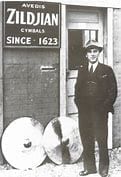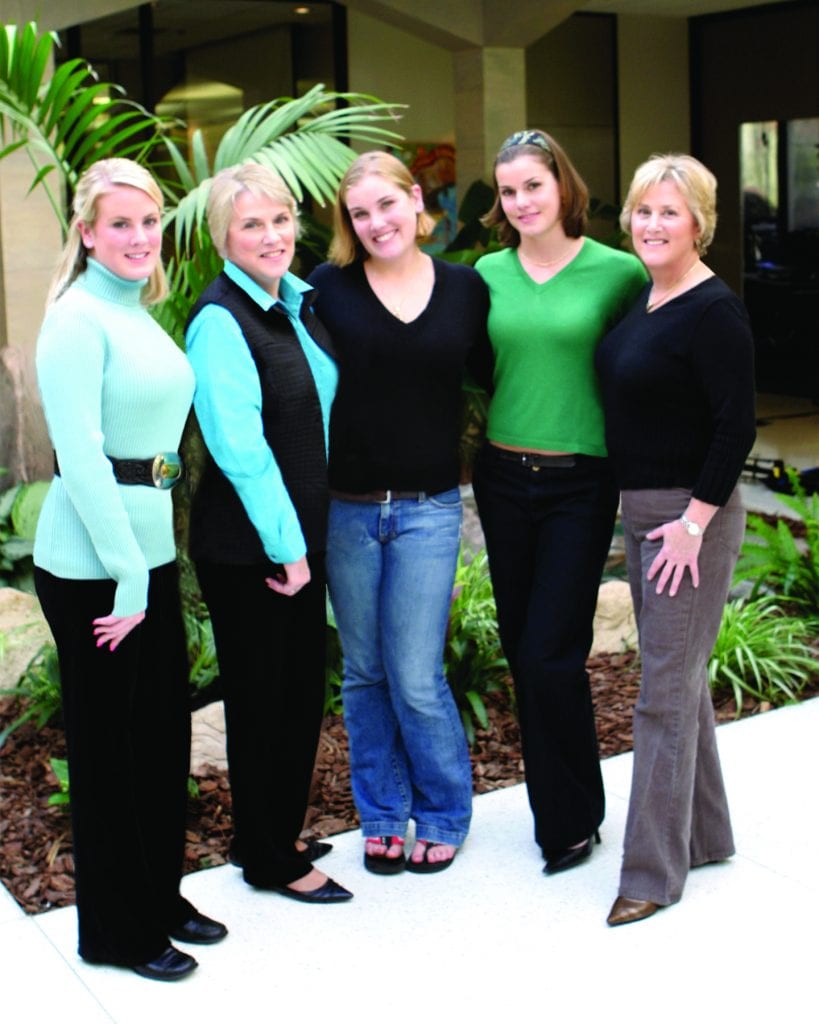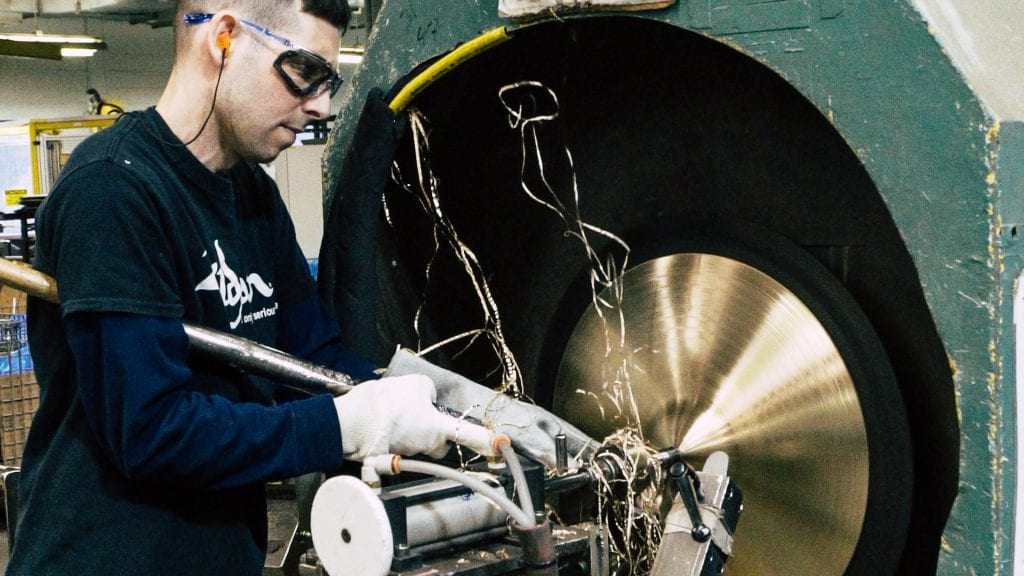
September 23, 2019 by Carol Britton Meyer
The Avedis Zildjian Company -- the world's leading maker of cymbals for drumsets, marching bands, and orchestras as well as drumsticks and percussion mallets -- is the oldest family-owned business in the United States, with strong ties to this town.
" I am the third generation of Zildjians to live in Hingham," said Cady MacPherson, who along with her mother, Deborah Zildjian, works for the company. "My grandfather built one of the first homes in World's End in the early 1950's, and my family has lived there ever since. My mother owns the house, and I grew up there. It is very special to our family, and there have been lots of great Zildjian parties there."

The company vision of inspiring people to express themselves through music rings true, from beginners to the world's greatest rock stars. Among Zildjian's customers are Eric Singer from Kiss, Dave Grohl from Foo Fighters, Charlie Watts from the Rolling Stones, and drumming icon Buddy Rich, along with jazz performers and concert percussionists -- all of them experiencing and sharing the joy of music.
"We have close working relationships with our artists who support Zildjian in promoting our brand around the globe and sometimes work with us in creating new cymbal products," Zildjian said. "It’s always fun when artists visit our Norwell headquarters to select new cymbal sounds or participate in podcasts for our social media."
Deep roots
The company was established in the early 1600s in Istanbul, Turkey, moved to Quincy in 1929, and then to Norwell in 1973. While incorporated in the U.S. in 1929, the company's relationship with drumming and drummers dates back to 1618.
Zildjian's history begins with Avedis I, an alchemist in the court of an Ottoman Sultan in the early 17th Century. While trying to make gold, Avedis created a special alloy that was extremely melodious and was commissioned to make cymbals for the elite marching military bands.
"Zildjian cymbals were manufactured in Istanbul for the next couple of centuries, finding their way off the battle field with the rise of classical music and opera. Facing religious and political tensions in Turkey in the early 1900's, my great-grandfather emigrated to Massachusetts and eventually brought the business with him," MacPherson said.

The company faced challenges in the USA as well. "The Quincy factory opened in the height of the Depression, and metal rations during WWII severely hindered the company," according to MacPherson. "But the family persevered, and the company thrived with the rise of swing music, big bands, jazz, and eventually rock and roll."
Zildjian is best known for and specializes in making music. "We are literally making the same product as we were almost 400 years ago, creating and cataloguing many different sounds and effects from which to choose," MacPherson said.
There are currently three generations of Zildjians who are shareholders in the business. The 14th generation of the family to be active in the company is Deborah Zildjian (head of human resources) and MacPherson's Aunt Craigie Zildjian, who is the president and chairwoman of the board.
In the 15th generation there are three shareholders -- MacPherson, her sister, Emily Zildjian- Hill, and her cousin Samantha Zildjian. "We all have children who make up the 16th generation of Zildjians!" MacPherson said.
Secret to success
Hands down, she explained, "the secret to our success is finding and retaining amazing employees in both our office and factories. We really value the people who work for us and consider everyone a part of the Zildjian family."
Their family business is special, Zildjian said, "mostly because of our longevity – nearly 400 years under family ownership. As the business and the family have grown, it becomes more challenging to keep the business going. Fortunately there continues to be a demand for acoustic cymbals and we have grown the core business by acquiring Vic Firth drumsticks and Balter mallets" – two companies that complement cymbals and rely on similar sales channels around the globe.
"We are excited to continue exploring growth opportunities inside and outside of the music industry," MacPherson said.
When asked about the benefits of being part of a family-owned business, MacPherson had this to say: "It's always a double-edged sword. Its hard to separate the family from the business at times, but it is amazing to work with your family and share that connection," she said. " We do truly feel the business is bigger than any one family member. We see ourselves as stewards of the company and plan to keep it going for generations to come. It is a privilege to be part of its history."

There are also challenges. "We work with several groups that help family businesses navigate conflict," MacPherson said. " There are a lot of resources for family-owned companies, and we rely on the best practices of other family-owned enterprises as well as the experience of our board of directors to help us get through those issues."
As the company has grown, non-family professional managers have been hired to assist the Zildjian family in running the business. "We have a very engaged board of directors who are a mix of family and experienced business people," Zildjian said. "We have developed a long-term strategic plan that continues to evolve but helps guide us in making critical business decisions. We work with a family business consultant who keeps us focused on good governance and ways to include all 16 generations. We have also established a family council that meets quarterly to inform shareholders of key business issues."
Global market
Besides Norwell, the company has offices in Maine, California, the United Kingdom, and Singapore and sells its U.S.-made products globally.

MacPherson explained how the business has evolved over the years. "While our product has not changed much in 400 years, the manufacturing process certainly has. We are constantly upgrading and improving all of the processes that go into making cymbals," she said. "Our factories have become more sophisticated in the last few decades, embracing robotic technology and lean manufacturing practices when appropriate."
The manufacturing process is a unique combination of hand craftsmanship and automation which allows the Zildjian company to create clear, beautiful sounding cymbals while minimizing the heavy labor previously required in cymbal-making.

MacPherson shared an interesting anecdote. "The night the Beatles appeared on the Ed Sullivan Show in 1964 was a huge moment for us," MacPherson said. "Everyone wanted to be a musician, and overnight we had almost 90,000 cymbals on back order. It was a huge moment in our sales history and propelled Zildjian into a new factory with a lot more capacity in Norwell."
Among special Zildjian family memories is the occasion of the company's 375th anniversary, when the company hosted an event to honor some of the era's legendary jazz drummers. "My grandfather was still alive, and it was awesome to see him up on stage with amazing drummers such as Louie Bellson, Max Roach, Roy Haynes, and Elvin Jones, who had such a respect for his product and knowledge. The event honored my grandfather's contribution to the careers of so many musicians."
Zildjian said her family "is very lucky to be part of the music industry and to know that our products provide so much joy to so many people."
For more information visit zildjian.com.


Great story!
We are so lucky to have them on the South Shore.
Thank you for this article.
Mary Aucoin
Amazing family who strive to make the music industry the best by producing such an excellent product!
Great article, well done, Cady! One for the scrapbook!!!!
I believe it was around 1980 that I worked as a graphic designer at SGM advertising. Zildjian was just up the street and a client of ours. I recall rubbing down Zildjian logos onto a few cymbals for photos promoting the new line. Many things in advertising have changed but not the quality and popularity of the Zildjian product.